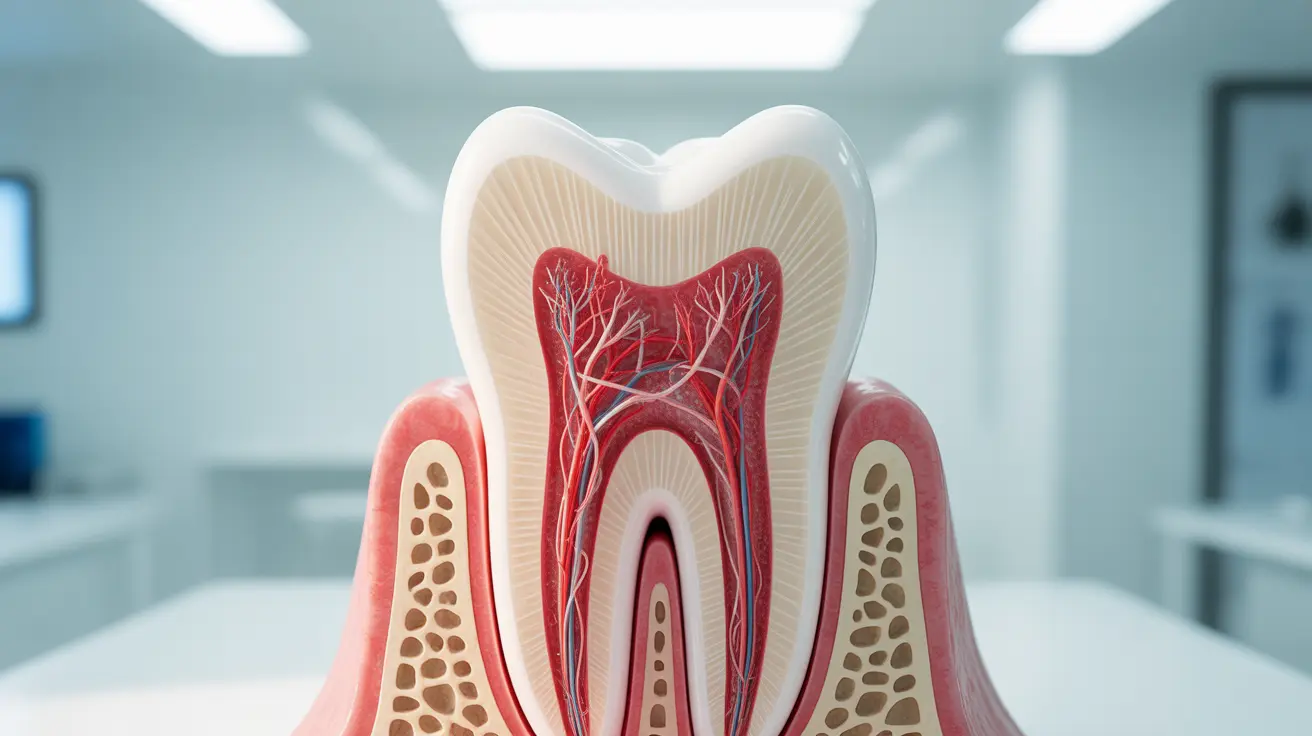The tooth pulp plays a crucial role in maintaining your dental health, serving as the living tissue at the center of each tooth. This soft, innermost part contains blood vessels, nerves, and connective tissue that keep your teeth alive and functioning properly. Understanding tooth pulp and its importance can help you better protect your oral health and recognize when problems might arise.
When healthy, tooth pulp helps maintain tooth vitality and supports overall dental function. However, when compromised, it can lead to significant discomfort and potentially serious dental issues that require professional attention.
The Structure and Function of Tooth Pulp
Tooth pulp is composed of several vital components that work together to maintain tooth health:
- Blood vessels that provide nutrients
- Nerves that enable sensation
- Connective tissue that supports tooth structure
- Specialized cells that help form dentin
This complex network of tissues serves multiple essential functions in your teeth, including:
- Sensing temperature changes
- Detecting pressure and pain
- Supporting tooth development
- Maintaining tooth hydration
Common Tooth Pulp Problems
Various issues can affect your tooth pulp, leading to discomfort or damage:
Pulpitis
Pulpitis occurs when the tooth pulp becomes inflamed, often due to:
- Deep cavities
- Cracked teeth
- Repeated dental procedures
- Trauma to the tooth
Dental Pulp Infection
When bacteria reach the pulp, infection can develop, potentially leading to:
- Severe pain
- Abscess formation
- Bone loss around the tooth
- Need for root canal treatment
Protecting Your Tooth Pulp
Maintaining healthy tooth pulp requires consistent oral care practices:
- Regular brushing and flossing
- Prompt treatment of cavities
- Wearing protective gear during sports
- Regular dental check-ups
- Avoiding excessive grinding or clenching
Treatment Options for Pulp Problems
When tooth pulp becomes damaged or infected, several treatment approaches may be considered:
Conservative Treatments
For mild cases, treatments may include:
- Removal of decay
- Protective dental crowns
- Medication for pain management
- Monitoring for healing
Root Canal Therapy
In severe cases, root canal treatment might be necessary, involving:
- Removal of damaged pulp
- Cleaning of root canals
- Filling and sealing the space
- Placement of a protective crown
Frequently Asked Questions
What is tooth pulp and why is it important for my dental health? Tooth pulp is the soft tissue inside your tooth containing blood vessels, nerves, and connective tissue. It's essential for tooth development, sensation, and maintaining tooth vitality through nutrient delivery and infection response.
What are the common symptoms that indicate a problem with my tooth pulp? Common symptoms include increased sensitivity to hot and cold, persistent tooth pain, throbbing sensation, swelling around the affected tooth, and pain when biting or applying pressure.
How is tooth pulp infection or inflammation (pulpitis) diagnosed and treated? Diagnosis involves dental examination, X-rays, and sensitivity tests. Treatment options range from protective measures for reversible pulpitis to root canal therapy for irreversible cases or severe infection.
Can damage to the tooth pulp be prevented, and what oral care practices help protect it? Yes, damage can often be prevented through regular dental hygiene, prompt treatment of cavities, wearing protective gear during sports, and regular dental check-ups.
What happens if an infected or damaged tooth pulp is left untreated? Untreated pulp problems can lead to severe pain, abscess formation, bone loss, spread of infection to surrounding tissues, and potentially tooth loss. In some cases, it may develop into a serious systemic infection requiring immediate medical attention.




